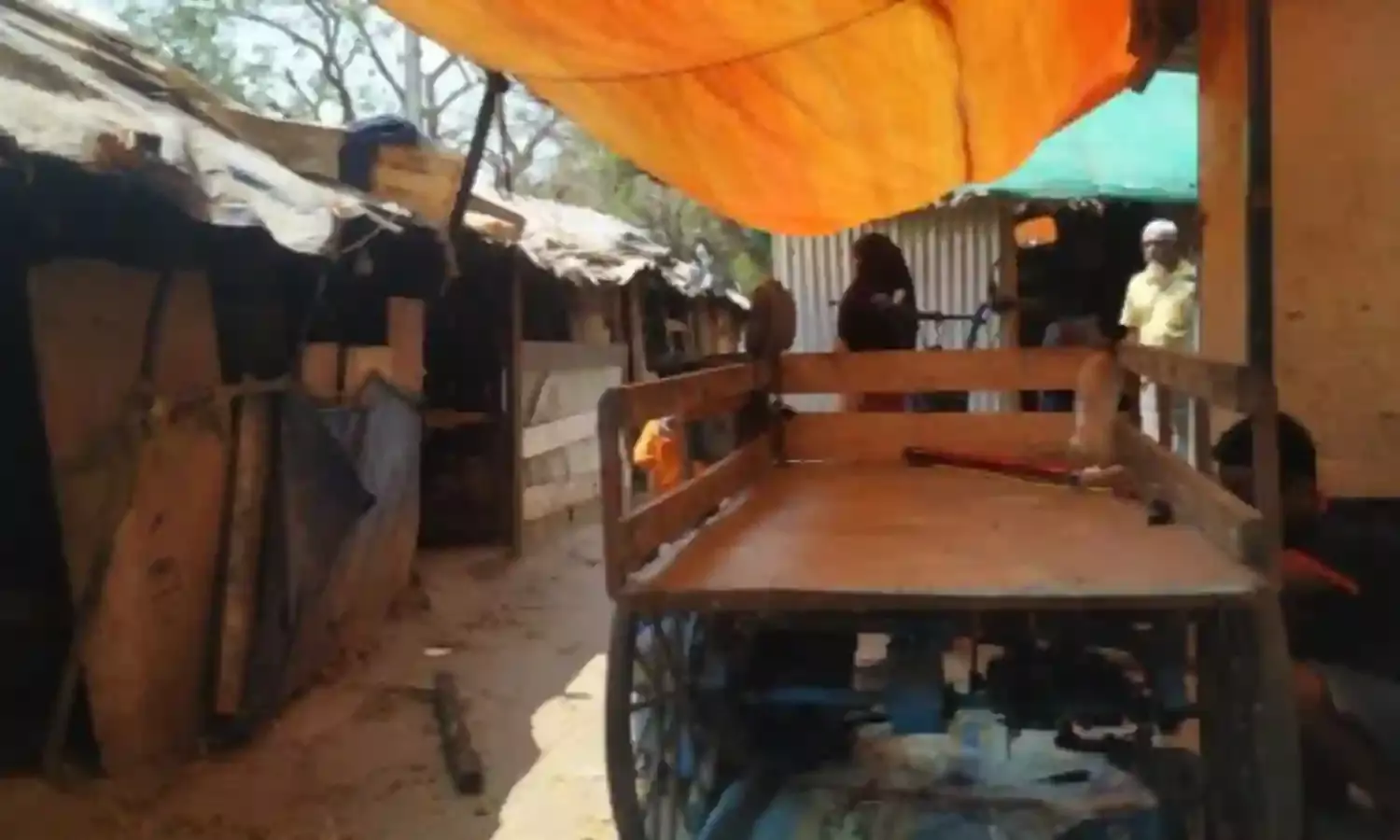A Rohingya Refugee’s Memories of Myanmar
Living a refugee’s life of “impermanence”

“Everything that a rich man has in this country, I had it back in Burma”, said 55-year-old Naeem Rahman (name changed), semi-attentively, as he watched the engine of his cart fail to come alive. The cart has been a wreck for the past three days. Without a working cart, Rahman has been unable to collect scrap-plastic bottles, metal cans and glass beer bottles from the roadside and carry them to the scrap market.
About a decade ago, Rahman hadn’t expected his life to unfold the way it has. From two acres of lush green paddy fields of his native Rakhine State, he has now been relegated to the overpopulated narrow-winding lanes of a retired Cyclone Shelter in Kelambakkam, Chennai.
As Rakhine State fell into shambles during state-sponsored persecution and forced displacement of Rohingya Muslims in 2012, Rahman’s land was seized by the Myanmar government without any prior notice. His family was one of the 18 that found themselves on the unfamiliar side of the Myanmar-Bangladesh border.
Hoping to find shelter in Chittagong, he met with a broker, who suggested Rahman and his family should settle in India, stating Bangladesh was an unsafe space for Rohingya Muslims. “He said it would cost me Rs. 7500 for each family member to be transported across the India-Bangladesh border. Since I couldn’t afford to pay the fee, he referred me to another broker who promised to provide safe passage to India,” he said.
However, the second broker proposed that Rahman could pay off his debt in Chennai by working as his labourer. Running short of alternatives, Rahman agreed and was sent off to Calcutta, from where he boarded a train to Chennai. Only a few burn scars on his hands remain as evidence of this labour.
Even upon reaching Chennai, Rahman failed to immediately find a safe shelter for himself and his family. From hostile locals threatening to demolish the mosque he was staying in, to uninvited police interventions, he had seen it all. Finally, in 2014, the Office of United Nations High Commissioner on Refugees (UNHCR) refurbished an old Cyclone Shelter and allotted it to the Rohingya refugees.
Rahman despises the circumstances that forced him to arrive in India but does not harbour any hard feelings. “The shelter provides my community with basic amenities such as water and electricity. There are a few government schools close by that I can send my grandchildren to, and I earn anywhere between Rs. 100 to Rs. 500 in a day,” he said.
“Most of the locals have been very warm. I got more than what I asked for,” Rahman added.
Since his arrival in India, Rahman has been the sole earning member of his family, despite his senior age. As all his daughters are homemakers, he said he was counting on both his sons to earn for the family when he no longer can.
His siblings, whom he hasn’t met in decades, are scattered over the Rohingya Refugee Camp of Bangladesh and the low-lying areas of Rakhine. They haven't been able to contact each other since their separation.
“My deepest fear is that I’ll never see my loved ones again,” he said, as he reached for the wallet in his back pocket. He pulled out an old photograph of him and his sisters. The one thing that immediately stirs Rahman—otherwise an incredibly resilient man—is the mention of the family he left behind.
Nothing is the same in Rakhine—except for his home, which stands intact amidst all the turmoil. Spared by the government out of sheer luck and preserved by Rahman for its sentimental value, he simply refuses to sell his old house.
“When I die, I want my grave to be lowered into the Burmese soil,” Rahman said. “If the Burmese government removes legal barriers, I would go back happily,” he added.
Rahman continues to refer to Myanmar as ‘Burma’ and Rakhine as ‘Arakan’. Though holding onto the memories of his country, he believes he would not have survived the 2017 crackdown on Rohingya Muslims if he had not fled. Médecins Sans Frontières (MSF) estimated at least 6,700 Rohingya were killed in the month following the outbreak of violence in 2017, including around 730 children under the age of five.
Rahman said living a refugee’s life is characterised by “impermanence”. “We are here today, who knows where we will be tomorrow?” he said. “Our mosque is built of sun mica sheets. Shawls and dupattas act as our curtains. Our huts are made out of pieces of tin and wood. Ours is a makeshift home.”.
Cover Photo: Rahman’s jammed scrap cart waiting to be serviced



